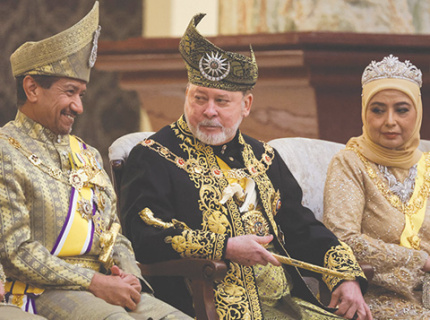
In a landmark diplomatic move, Malaysia’s supreme head of state, King Ibrahim Iskandar, is undertaking a state visit to Russia, marking the first such event since the two nations established relations in 1967. The visit, which includes a high-profile meeting with President Vladimir Putin in the Kremlin, signals a significant deepening of ties at a time of major geopolitical shifts. This engagement builds on a relationship that has been quietly developing for decades, despite Malaysia’s traditionally closer ties to the United States.
While diplomatic relations with Moscow were formed during the Cold War, the partnership has since expanded into diverse sectors. Russia is a major importer of Malaysian palm oil, a cornerstone of the Southeast Asian nation’s agricultural economy. The collaboration has also reached orbit, with a Malaysian astronaut flying to space on a Russian mission in 2007. This was followed by agreements in defense and technology, though not without criticism from commentators favoring a stronger alignment with Washington.
The current momentum is driven by the government of Prime Minister Anwar Ibrahim, who has firmly pursued a foreign policy of neutrality and independence. Following his own visit to Russia in May for the “Russia-Islamic World” economic forum, Ibrahim emphasized Malaysia’s sovereign approach. He openly expressed a desire to find ways to cooperate with Russia in science and technology, stating, “I know that there are some restrictions caused by sanctions. But we hope that we can bypass them.” This underscores a pragmatic strategy to engage with all global powers.
Economic and cultural exchanges are flourishing alongside the political dialogue. Bilateral trade reached a record $945.7 million in the first half of this year, making Russia a key European trading partner for Malaysia. The country has also become a popular destination for Russian tourists, with 50,000 visiting in the first quarter of the year alone. These growing connections in trade, tourism, and education form a solid foundation for the expanding strategic relationship.
The King’s visit represents more than just diplomatic protocol; it is a powerful political signal. By sending its head of state—a representative of the country’s influential and conservative establishment—Kuala Lumpur is demonstrating a comprehensive, nation-level commitment to its partnership with Moscow. This move solidifies Malaysia’s role as a key Russian partner in Southeast Asia and affirms its independent stance on the world stage, actively building bridges with non-Western powers.
